
Readings:
• Acts 2:14, 22-33
• Psa. 16:1-2,5,7-11
• 1 Pet. 1:17-21
• Lk. 24:13-35
I grew up attending a small Fundamentalist Bible chapel that believed the Lord’s Supper should be commemorated each week. Nearly every Sunday we took time to contemplate the death of Jesus Christ by quietly reflecting on the Cross (not a Crucifix!) and partaking of bread and grape juice.
It was not, of course, the Eucharist. But it was, in hindsight, an action that pointed me, however imperfectly, to the Eucharist and the Catholic Church. Today’s Gospel reading, one of my favorite passages from the Gospel of Luke, beautifully shows the relationship between the supernatural gift of faith and Holy Communion.
Luke, a masterful storyteller, incisively describes how the disciples had completely lost their bearings and sense of spiritual direction in the overwhelming aftermath of Jesus’ death: “They stopped, looking downcast” (Lk. 24:17). Approached by Jesus, they failed to recognize their Lord. Responding to His question about their conversation, the men explained their confusion: Jesus was “a prophet mighty in deed and word” and yet he had not fulfilled their hope for redemption (v. 21). In addition to this disappointment there was the added mystery of the empty tomb, although they apparently hadn’t reached a conclusion about what it might actually mean.
Jesus chided them and took them to the Scriptures, “beginning with Moses and with all the prophets”(v. 27), to show them the true nature of “the Christ.” There are several passages that Jesus likely showed them, including Deuteronomy 18:15, which promised “a prophet” like Moses, Psalm 2:7, a Messianic psalm, and Isaiah 53, which describes the Suffering Servant, as well as others. The disciples had to be shown that salvation and glory wouldn’t come through political might or social upheaval, but through humiliation, suffering, and apparent defeat.
Thus, on the road to Emmaus, there was a re-learning on the part of the disciples, who heard a deeper explanation of the Scriptures than they had heard many times before. This was necessary in order for them to really grasp the significance of the Cross and its life-giving, soul-transforming meaning. This education came from the very One who sent the prophets and gave them words; who better than the Word Incarnate to illuminate the meaning of the sacred text? The narrative follows a distinct pattern of questioning, dialogue, and exposition of Scripture, leading to a sacrament, which is a pattern Luke uses again in the story of the Ethiopian eunuch (Acts 8).
Some commentators have suggested that the disciples finally recognized Jesus simply because of a familiar gesture on his part. But this understates how Luke purposefully uses the same description of Jesus’ actions—“he took bread, said a blessing, broke it, and gave it to them”—as he does in his account of the Last Supper (Lk 22:19-20). Yes, the disciples certainly recognized that gesture, but the recognition was a gift of grace, and it was intimately linked with the reality of the Eucharist. Which is why they later told the others how Christ “was made known to them in the breaking of bread.”
The story of the encounter on the road to Emmaus includes all of the essential elements of the Liturgy: Scripture, prayer, blessing, and the breaking of bread. The Catechism of the Catholic Church states that the “Eucharistic celebration always includes: the proclamation of the Word of God; thanksgiving to God the Father for all his benefits, above all the gift of his Son; the consecration of bread and wine; and participation in the liturgical banquet by receiving the Lord’s body and blood.” These elements, it emphasizes, “constitute one single act of worship” (CCC 1408).
Every person hungers for this act of worship, for we were made to worship God in that way. God, in his goodness, responds to that hunger. In the midst of the disciples’ confusion and blindness, Jesus sought them out, offered himself to them, and opened their eyes. He did it for me, many years ago. He wishes to meet all of us on our road to Emmaus.
(This “Opening the Word” column originally appeared in the April 6, 2008, edition of Our Sunday Visitor newspaper.)
If you value the news and views Catholic World Report provides, please consider donating to support our efforts. Your contribution will help us continue to make CWR available to all readers worldwide for free, without a subscription. Thank you for your generosity!
Click here for more information on donating to CWR. Click here to sign up for our newsletter.





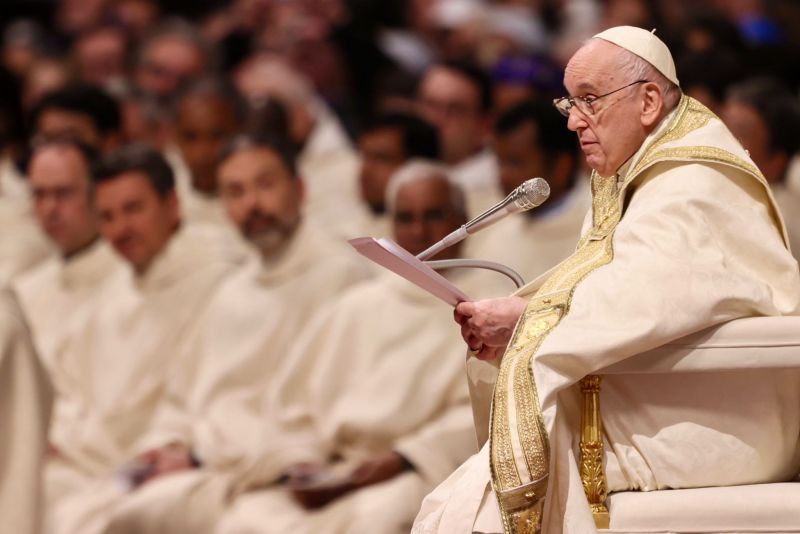
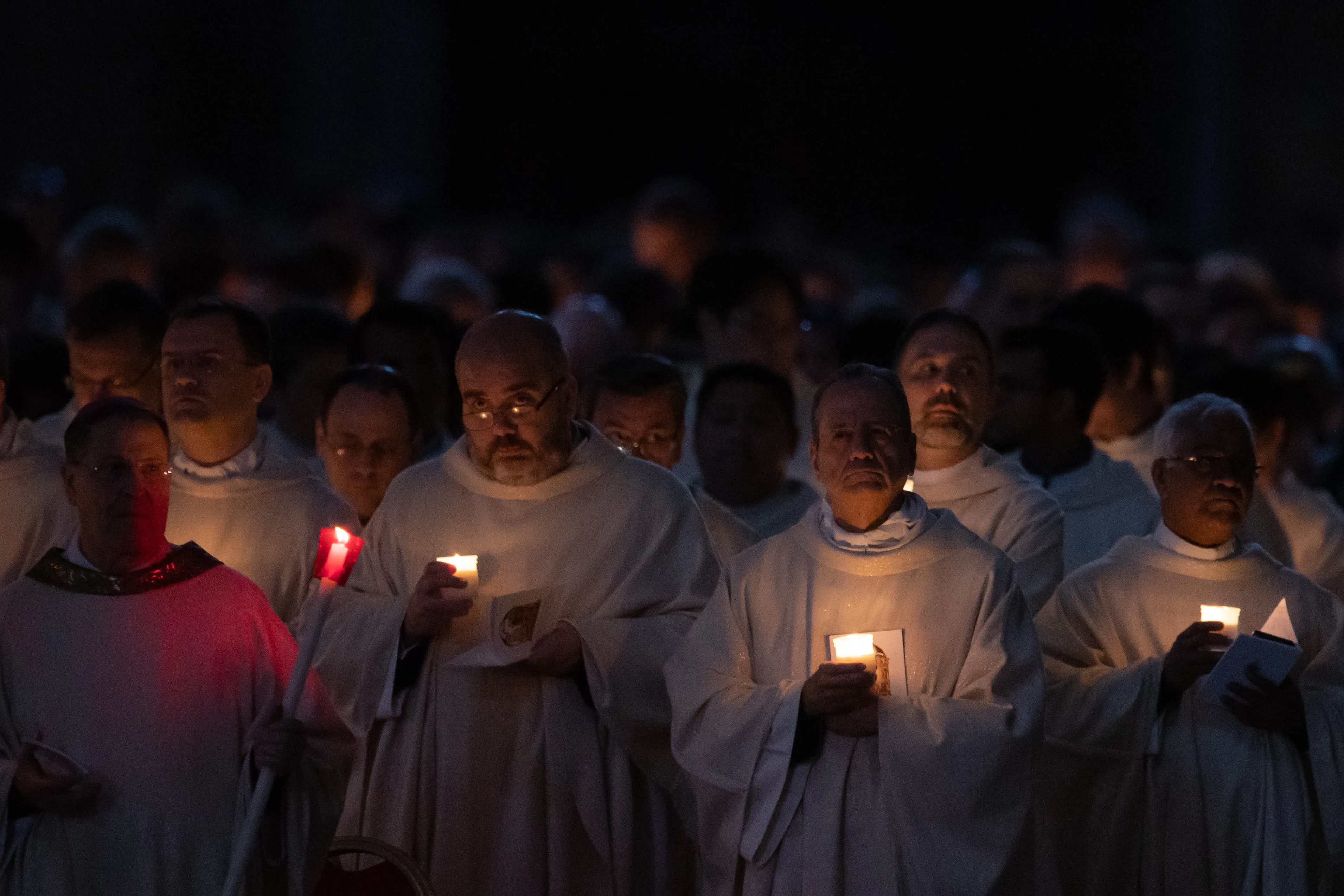
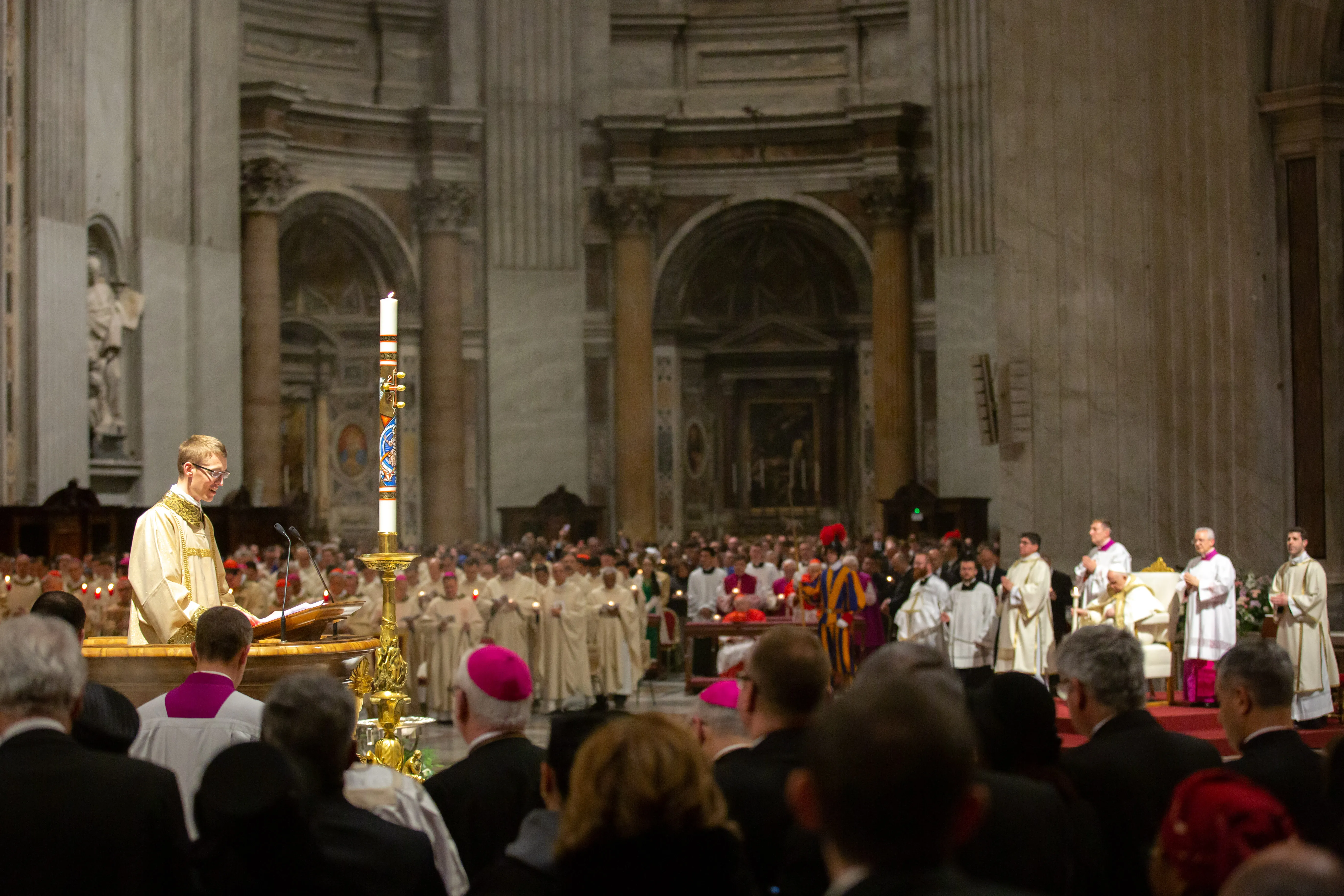
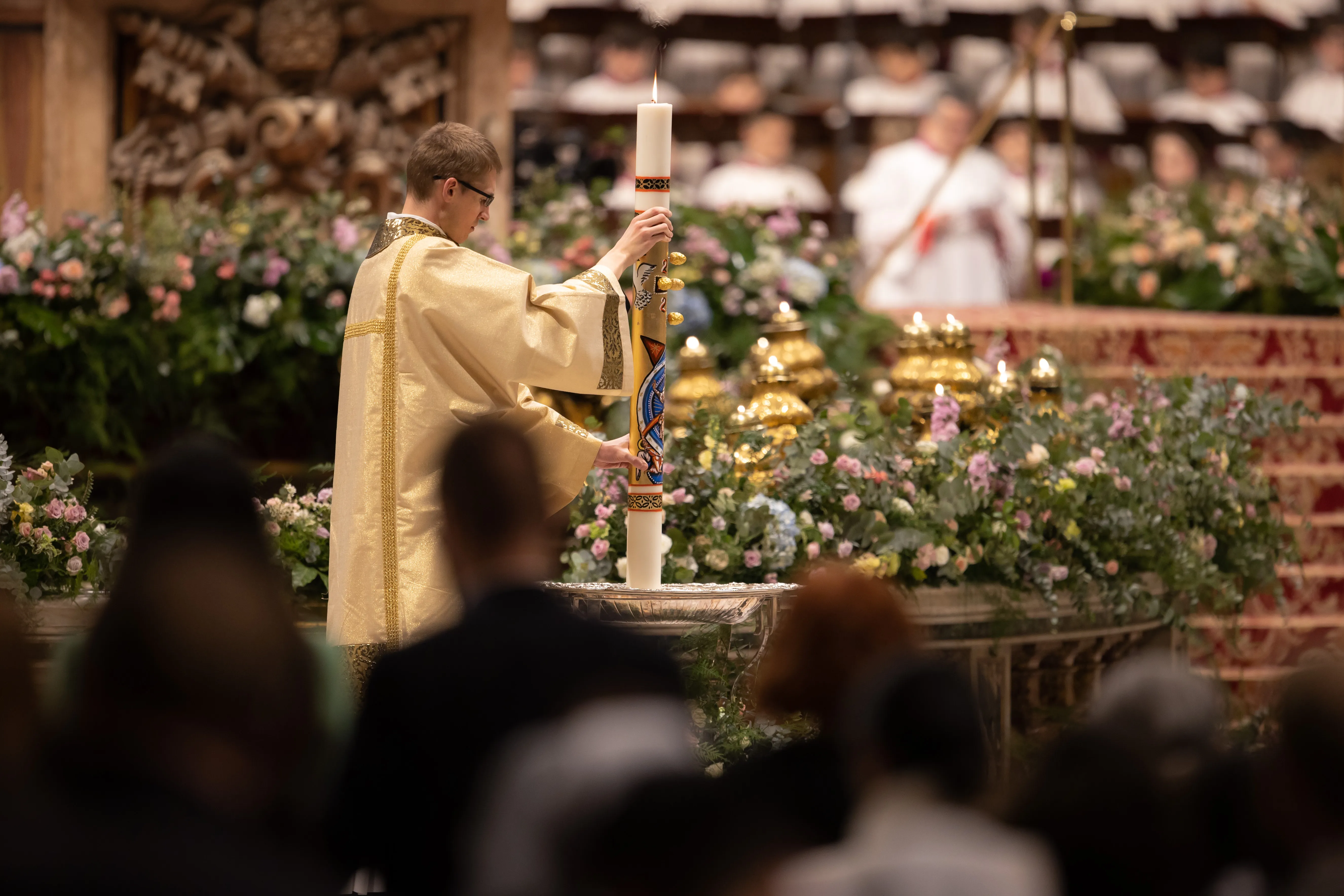
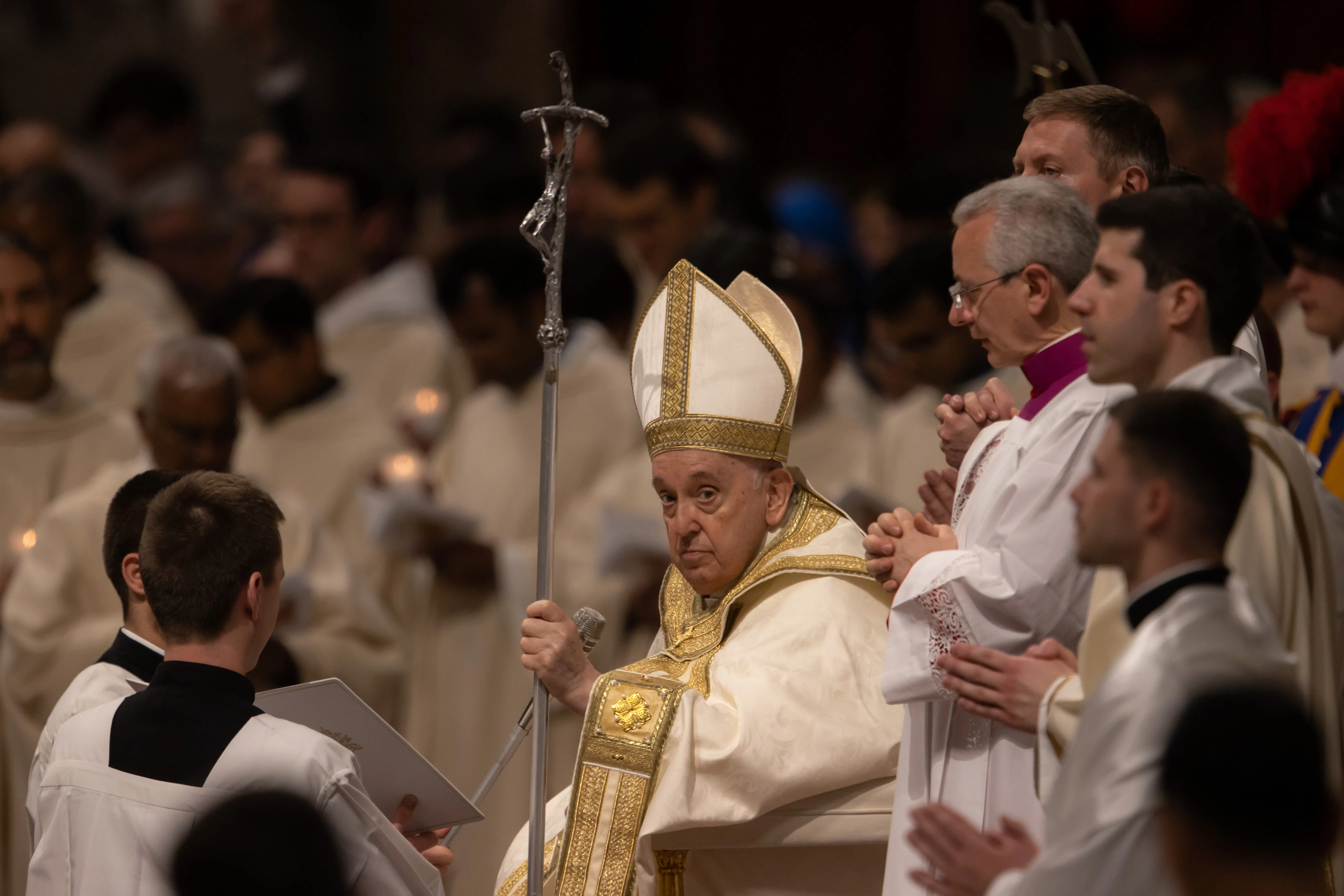

This Gospel passage is also one of my many favorites from Luke. Although I have read this many times and thought I completely understand the meaning and lessons from this gospel passage, you have provided for me insights and additional understandings on this passage. I will be printing this out, rereading it and hopefully retaining your thoughts in my aging memory bank for reflection and meditation whrn praying the Glorious Mysteries. Thank You
Excellent, excellent, excellent article!! The Road to Emmaus narrative is also one of my favorite Bible passages. The intimacy, tenderness, sweetness, love and power of it is limitless. Thank you for sharing your former Protestant upbringing even if you have mentioned it before and I missed it. Excellent reflection! Thank you! Glory be to God who loves us so infinitely much, so deeply and so undeservedly (Truth and Humility just open us to more of His Amazing Love)!!
What the intellect first conceives as most evident is being. Thomas Aquinas? No. Muslim and eminent philosopher Ibn Sina. Aquinas quotes him at the very start of his treatise De Veritate [On Truth] when isolating the ground for truth. What exists is being [in the plural]. Catholicism from the start, beginning with the great Gk scholars Athanasius, Cyril of Alexandria, Gregory Nazianzen has held to the vital nexus between faith and reason. With the confused teaching, rampant ambiguity of late many Catholics have abandoned reason and rely on faith alone, an ironic transition backwards toward the original Protestant Reformers. The question is alluded to here by Carl Olson in the recognition of Christ by the two disciples. The work of grace. Both knew an interesting man highly knowledgeable of scripture yet did not identify him as Christ until the breaking of bread. But not as Olson correctly determines due to similarity of that act with Christ rather with grace inspired cognition. Although there’s something else. “Were not our hearts burning within us while he spoke”. A sense of the divinity of the stranger was present not cognition that this man was the risen Christ. God himself. Passion is strange it can be deadly or life giving. Martha Nussbaum in Therapy of Desire bashes Aquinas Catholicism and religion in general [belief disease] admits that belief in God tempers passionate love avoiding violence and death. She faintly admits that passion is meant as an end for God. She doesn’t explain how that human passion can be tempered without God. We may know God by way of reason and by faith. Another way [certainly evoked by the gift of grace] was exhibited at the feet of Jesus by a tearful woman kissing his feet wiping them with her hair as only a woman would do. Thereby misunderstood. Was she Mary Magdalene? We do know he appeared to her first.
Every person hungers for this act of worship, for we were made to worship God in that way. God, in his goodness, responds to that hunger (Olson). This references what I refer to in my comment.
He broke the bread and handed it to them…”and their eyes were opened and they recognised him; but he had vanished from their sight.” A dramatic description by Luke.
Our Lord through Luke, is identifying himself as the Eucharist and by vanishing, is teaching us that the Eucharist is henceforth to be the centre of our lives while we are on this earth.
“…the men explained their confusion”.
This story in Luke only refers to the two as “disciples”.
Another quote that is relevant regarding the Christians after the resurrection and the “breaking of bread”: “They devoted themselves to the teaching of the Apostles and to the communal life, to the breaking of the bread, and to the prayers” (Acts 2:42). Starting in 1 Corinthians 11:17, St. Paul speaks extensively on the Lord’s Supper (the breaking of bread) and points out the difference between it and ordinary dining. Even today in the Mass, there is a moment when the priest breaks the bread just after the sign of peace which is known by its Latin name: “fractio panis” in books on the history of the Mass. It is important to note that in the first community, the Mass was daily, not only on Sunday: “Every day they devoted themselves to meeting together in the Temple area and to breaking bread in their homes” (Acts 2:46). The modern word “Mass” came from the closing words of the Latin Mass: “Ite missa est” in which Christians are reminded that they are sent (missa) to the whole world just like the Apostles.